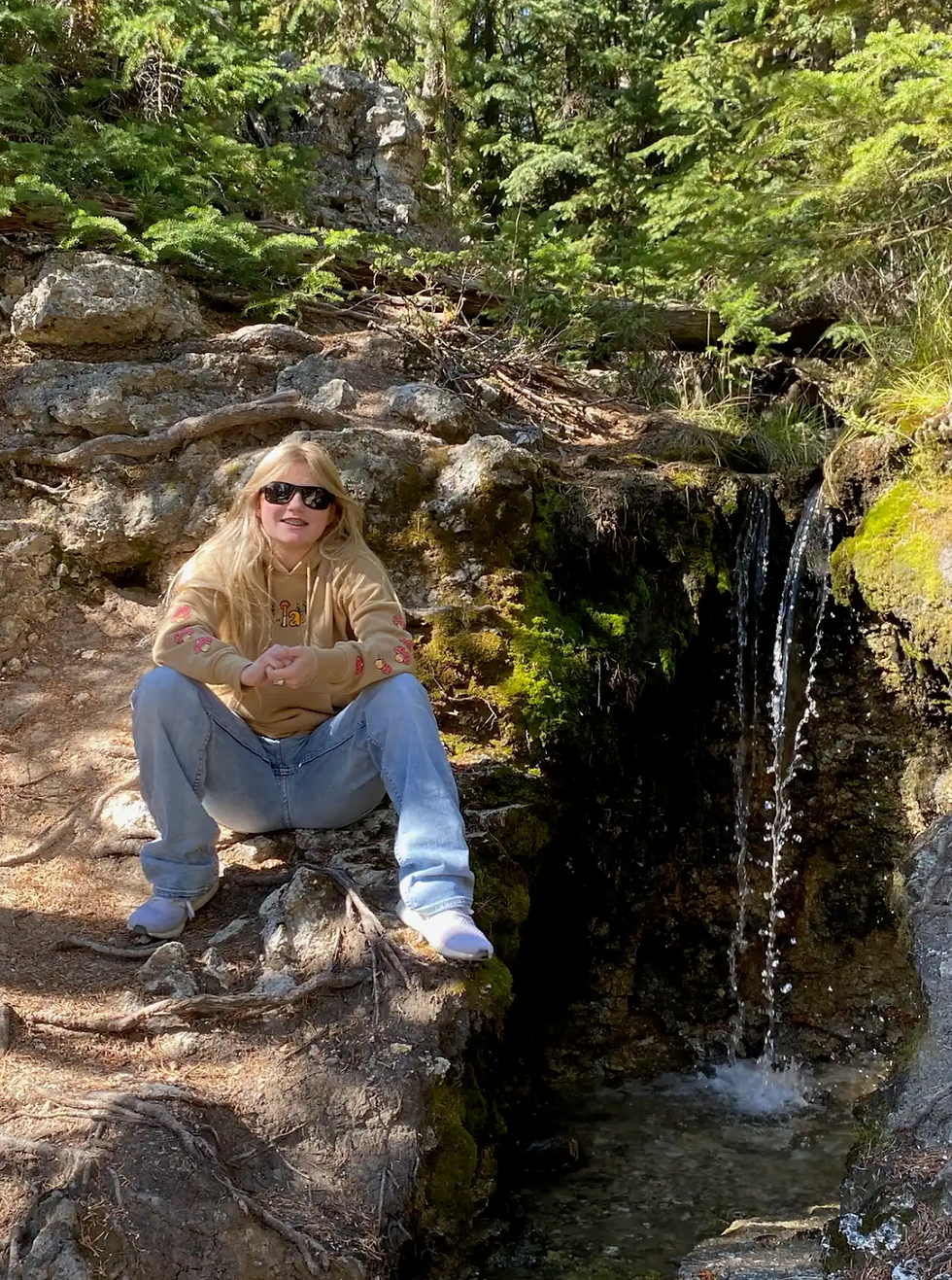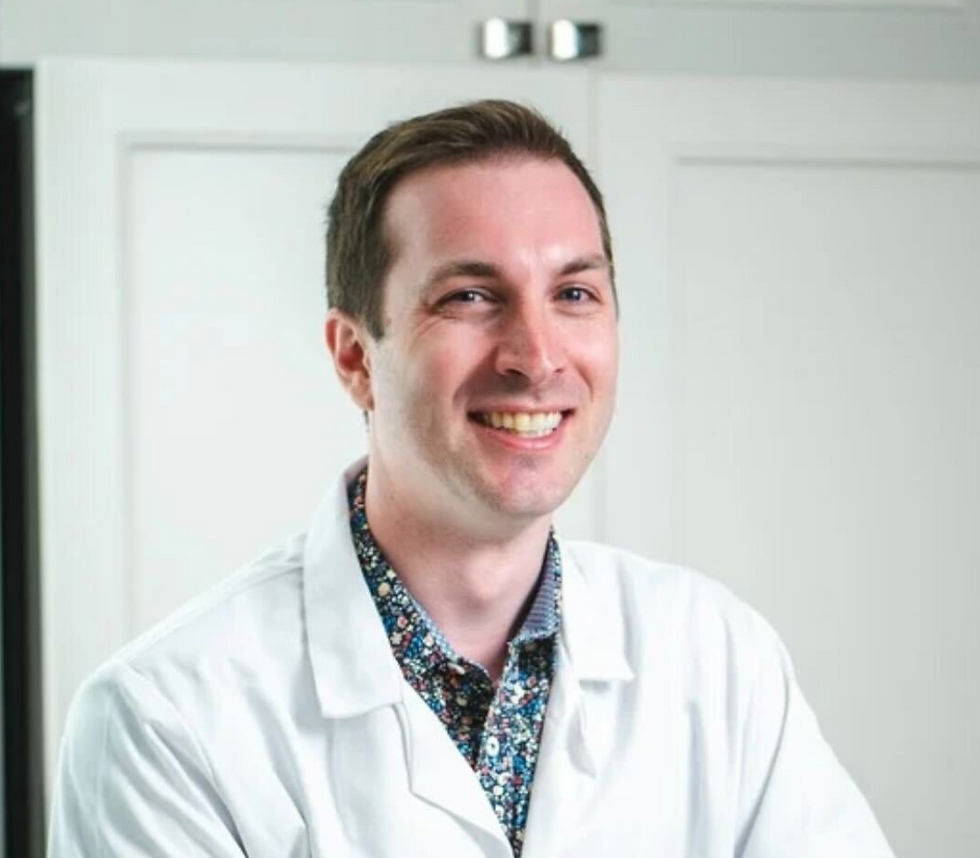Interview with Ariel Johnson
- Voices of Brain Injury
- May 29, 2025
- 7 min read
Ariel Johnson - VBI Interview

But I’ve realized how important it is to talk nicely to yourself. It's you versus you at the end of the day, right?
Even if you think you’re having a bad day - you didn’t have your coffee at the right time, woke up on the wrong side of the bed - I’ve learned that this life isn’t that serious. It’s all about perspective.
Tell me a little bit about yourself.
My name is Ariel Johnson, and I am a brain injury survivor and a motivational speaker. I speak at conferences and work with doctors. I just did a project with NYU to help brain injury survivors.
What happened to cause your injury?
On December 13, 2007, I was in a car accident. I was 17 at the time, and I was driving home from school on a free period. It was snowing that day and they didn't close campus, and as a senior, you can drive to and from school and on your free periods. I was going back to school, and I swerved into an oncoming lane, hit a van, collided into a pole, and then another car hit me on my passenger side. Thank goodness there was an off duty EMT professional two cars behind the van that I had hit. He had saved my life at the scene because the seat belt was choking me. Soon after, an ambulance came, and then I found out later on in my recovery that they shut off all the intersections to get me to the nearest hospital. They were going to airlift me, but they couldn't, because the weather was so bad. I got to the hospital and it just so happens that there is a surgeon on call ready to perform my surgery. They did a picture of my skull, a Glasgow coma scale to test the cognitive functions. I was on the severe end of the spectrum, and they quickly decided I needed an emergency craniectomy, which is the removal of the side of your skull to relieve the pressure.
What has your recovery journey been like?
I was in a coma for a month and a half, and woke up on January 28 in Mount Sinai Hospital in Manhattan, one of the best brain injury hospitals. My family was around me, and it felt so euphoric because I felt so much love, but at the same time, it was like, ‘Okay, I'm in pain. My right side is numb. What? Why? Why are all these wires on me? What? Why do I like this?’. Turns out, I woke up. My right side was completely numb. My body was numb. I couldn't walk, I couldn't talk, I couldn't do anything. I had to learn how to do everything physically all over again. I went home on Valentine's Day with a concave skull because they said they needed the bed.
Fast forward a few months, I’m walking on my graduation stage and I get a standing ovation. So normally, 17 year olds graduate high school and go off to college. Instead, I did a three month holistic day program in the city. This was like six months fresh out of a coma, and I was working on things like practicing my balance, commuting into the city, taking the subway. In the program, I learned problem solving, emotional regulation, and understanding how to react to things properly. And now I'm noticing that I'm doing those things that I learned fresh out of coma.
What made you start your blog?
From 2009 to 2013 I went through really bad depression because I felt so alone in my recovery. Then, I had a thought. I was like, ‘why don't you start a mental health blog?’ Fast forward to COVID - I was living with my ex boyfriend, and then I just started the blog. I started speaking at conferences. I have a group on Facebook for caregivers that take care of brain injury survivors. It’s around 1000 members, and it's private, so people can connect there. So that's where I'm at now and doing this interview, and I love helping brain injury survivors and caregivers.
Your journey is really, really inspiring, hearing about how you were able to overcome all of these different obstacles. I'm curious about how your outlook on life has changed since the accident - what are the biggest life lessons you've learned in the last 15 years?
To not sweat the small stuff and to not give a ****, pardon my French. To not care about what other people think but really focus on you and your life can become amazing. I remember there were times where I was so embarrassed that I couldn’t express myself. One of the symptoms I had to deal with was aphasia, where I couldn't find the words for what I wanted to say. I knew what I wanted to say, but it wouldn’t come out properly, and then after a while, I would be stuck in conversations with people. I would be so hard on myself, like, ‘Ariel, you idiot. Why? Why couldn't you just say what you wanted to say at that given time?’. But I’ve realized how important it is to talk nicely to yourself. It's you versus you at the end of the day, right? Now, I try to think ‘You did amazing, Ariel, you rocked this.’ Now I have this outlook on life, and it's kind of annoying to be around me at times, but I'm very positive.
What are some routines or other techniques that help you cope with your symptoms?
I thought I was so far behind everybody else, you know, being 17 and now 35 I'm like, ‘Oh my gosh, I don’t have a $35 million brand deal. I'm not like the mayor of the city or the President of the United States.’ For me, it’s been helpful to create a schedule for myself and realize I'm on my own time, and my time is my time. And so I've implemented exercising, and nothing feels better than being at my healthiest weight, going outside for a walk every day, watching what I put into my body and just really taking care of me. Being on a schedule is a game changer - I go to work, I come home, I go to the gym, then I go back home. It’s very simple, but I make sure I add in exercise.
What are some symptoms you experienced after your injury?
One was aphasia, where my communication skills were off. I had no awareness of my surroundings and of who I was. My balance is off - if I work a long day, or if I'm really tired, I will start to lean to one side. When I woke up from a coma, I was completely numb on my right side. Now I just have nerve damage. So if I'm doing the dishes or taking a shower, I always have to check with the left side first before I check with the right. Memory is another issue - I have to set alarms for everything, and I have to write notes for everything.
I know you mentioned that you have a blog, and that you’re a motivational speaker. Would you be able to explain what got you started, how it all came together, and what you’re doing now?
Between 2009 and 2013, I went through the scariest, darkest depression. I want to be as vulnerable about it, because I’ve realized that many people go through this. I wanted to commit suicide. That's how bad it got, because I felt so alone and trapped in my brain.
So I went through this really bad depression, and I was like, ‘Okay, I need something to do to make money, right? I'm good with kids.’ My first solid, real job was working in the city at a daycare. I worked there for a year and a half. And then after that, my ex asked me to move in with him. And then, I thought, ‘I can't afford life on a daycare salary. I can't live out on my own.’ So then I became a nanny, and fell in love with that process. Now I am a nanny for a woman and I work 50 hour weeks. I travel. We go from Brooklyn to San Francisco. I traveled to New Orleans with her. I'm living my dream life.
On top of that, I speak at conferences. I spoke at the Brain Injury Association of New York State, Brain Injury Association of Vermont, and then again, at the Brain Injury Association of New York State. And then Maryland was my last one, and that was in front of 300 people. There are so many more things I want to do - I want to write books. I want to train to be an athlete. I just ran 10 miles. I just want to rule the world because I remember, there was one point in my recovery where I was still in the hospital, and I finally saw what my encaved skull looked like. Imagine half of your head being gone. I'm looking at myself, and I'm like, ‘You're going to be the next President of the United States, if you’re in this state, but still alive and breathing’. There's nothing you can do. So that's part of the reason why I push so hard to go after my dreams, and create, to be a motivation to other people. I think being able to understand my situation can give you perspective into whatever you think is a bad day for you - you can get your **** together.
Even if you think you’re having a bad day - you didn’t have your coffee at the right time, woke up on the wrong side of the bed - I’ve learned that this life isn’t that serious. It’s all about perspective.



